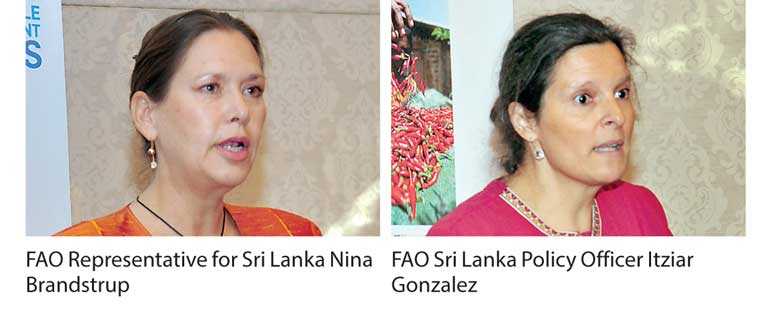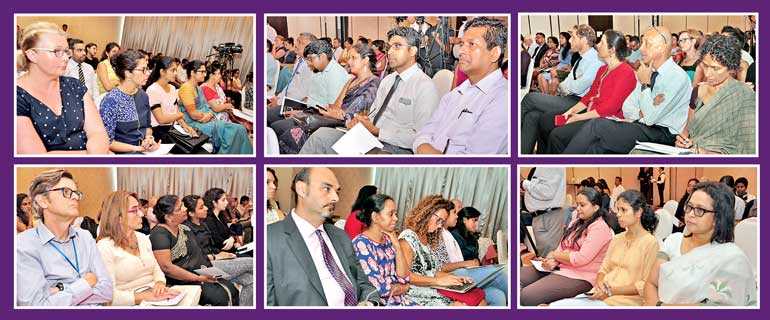Sunday Feb 22, 2026
Sunday Feb 22, 2026
Wednesday, 26 September 2018 00:00 - - {{hitsCtrl.values.hits}}


 By Divya Thotawatte
By Divya Thotawatte
The Food and Agriculture Organisation of the United Nations (FAO) recently stated that due to the extensive gender gap in the farming sector, action should be taken to mainstream gender in the agricultural policy in Sri Lanka.
According to FAO’s Country Gender Assessment of the Agriculture and Rural Sector in Sri Lanka, although women constitute a significant portion of the agricultural labour force of the country, due to prevailing gender norms and discrimination, they face an excessive work burden and much of their labour remains unskilled, unpaid and unrecognised.
FAO Representative for Sri Lanka Nina Brandstrup stated that to unleash the potential of Sri Lankan women in agriculture, gender considerations have to be mainstreamed into policies, strategies and programs and not ignored, uncomfortable as they might sometimes be. “Only in this manner can we effectively close the existing gaps between men and women for the benefit of individuals, families, rural communities and the country as a whole.”
“Research and practical experience have shown that when women are able to participate in agriculture on equal conditions, they can make a substantial contribution to improve their livelihoods of their families and can vastly increase the production and productivity at national level, with effects on well-being felt beyond the agriculture sector and rural areas,” Brandstrup added.
The key findings of the Gender Assessment for Sri Lanka reveal that female paid agricultural labourers get less than what their male counterparts receive, mainly due to women being unskilled. Moreover only 16% of all owned land in Sri Lanka belongs to women, and this limits their access to different agricultural assets and benefits such as subsidies, credit or irrigation water.
The assessment also states that women have fewer connections to influential networks and markets, which hampers their involvement in trade and commerce making them less involved in commercial agriculture and medium-scale industries that provide higher levels of income.
FAO Sri Lanka Policy Officer Itziar Gonzalez said, “The findings of the assessment indicate that gender mainstreaming is yet to be considered in policies, strategies and programs within the agriculture sector of Sri Lanka. There has been little research done to calculate at the national level the losses of productivity and reduced economic gains in agriculture due to gender equalities and the added benefit that could be obtained if women were given the same opportunities as men to reach their full potential.”
The assessment also insists that decision-makers at all levels of the Government and private sector need to be informed on issues related to gender which should be done through meaningful immersion training so that they would become committed to making the required changes. Also, it claims that women engaged in agriculture should be put through processes by which they will obtain the knowledge and technical knowhow required to work in the agricultural sector.
Furthermore, the gender assessment states that reforms are needed to address gender inequality in farmer organisations and realise the potential opportunities that exists to maximise incomes and productivity by empowering women and giving them equal consideration as men.
Pix by Sameera Wijesinghe